Do Glow Sticks Create Continuous Spectrum
Most kids love glow-in the dark things. Using glow sticks, you can set up a science demonstration lab that shows children how chemical reactions work, and teaches them about the light spectrum at the same time. Since glow sticks do use chemicals, it is not recommended to let the kids touch any of the glow liquid. However, the glow stick science demonstration can effectively illustrate several scientific concepts that will teach more about light, chemical reactions, and energy.
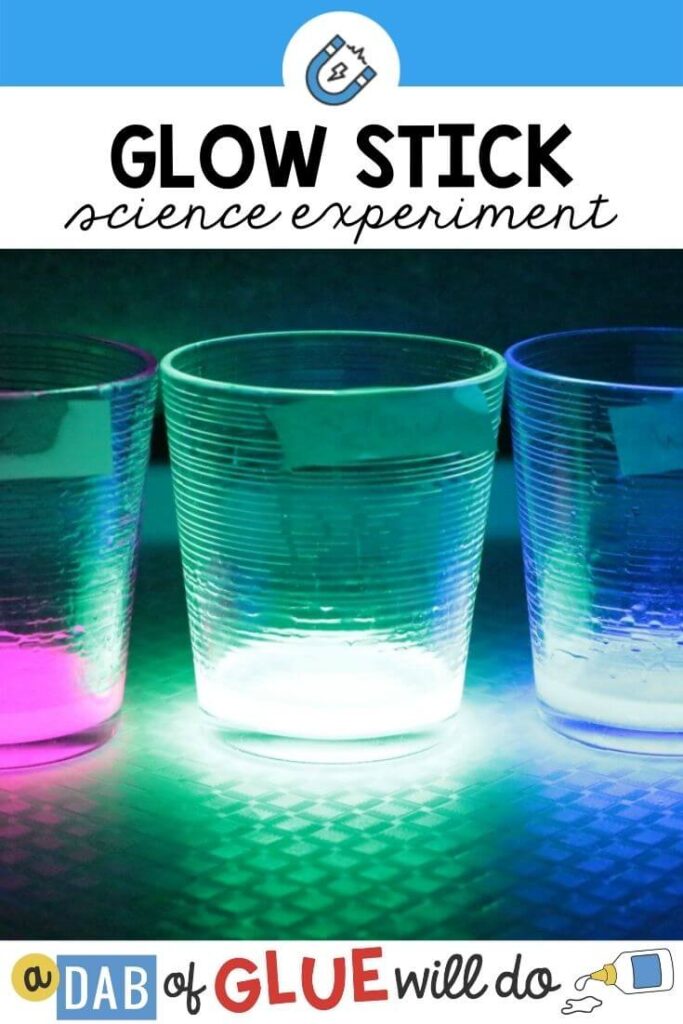
Getting the Glow Stick Science Experiment Ready
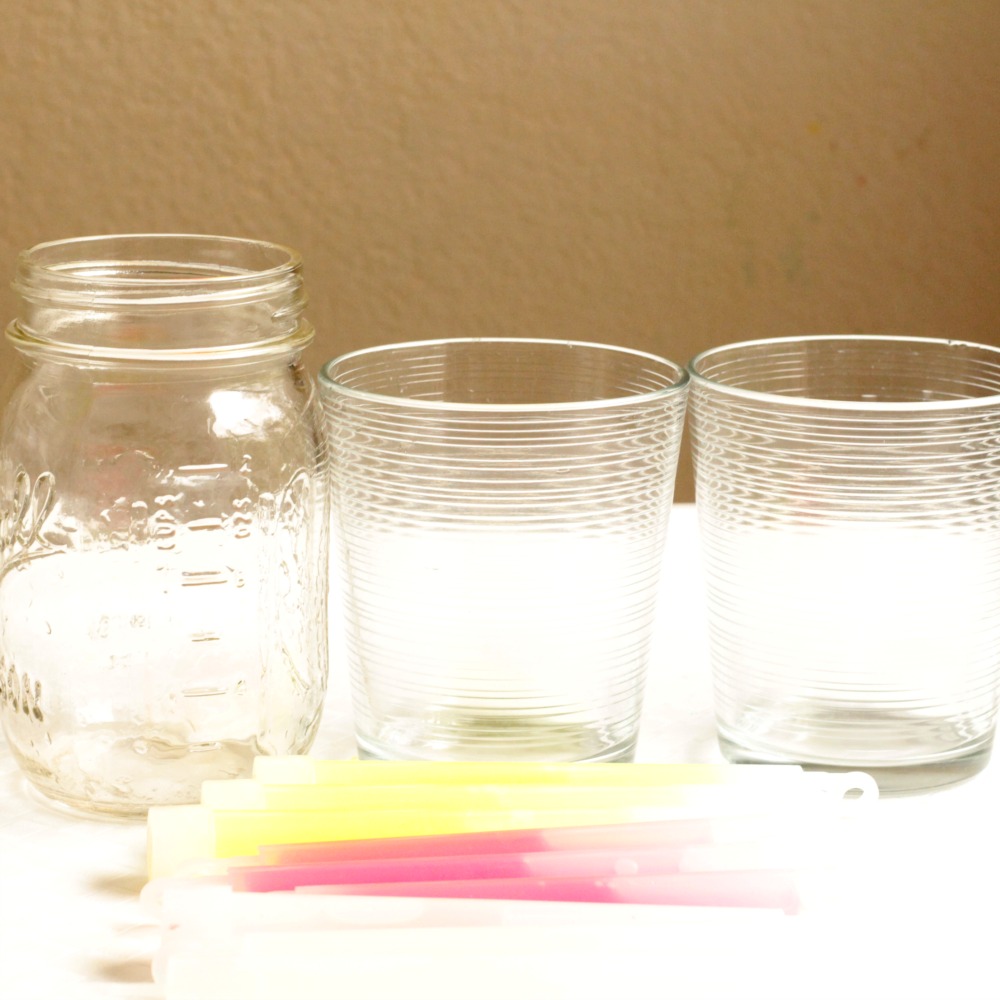
The set up for this experiment is a bit tricky and should only be done by a teacher. You will need:
- 3 colors of glow sticks: yellow, blue, and pink (we found jumbo glow sticks worked best)
- 6 small glass containers
- 1 plastic tray
- Paper towels
- Knife
- Mesh colander
- Latex gloves
- Safety goggles
Label two jars with each color name (so two pinks, two yellows, etc.). Put on your gloves and safety goggles.
Carefully cut open the top of each glow stick with a knife.
Pour the liquid into one container labeled with that color.
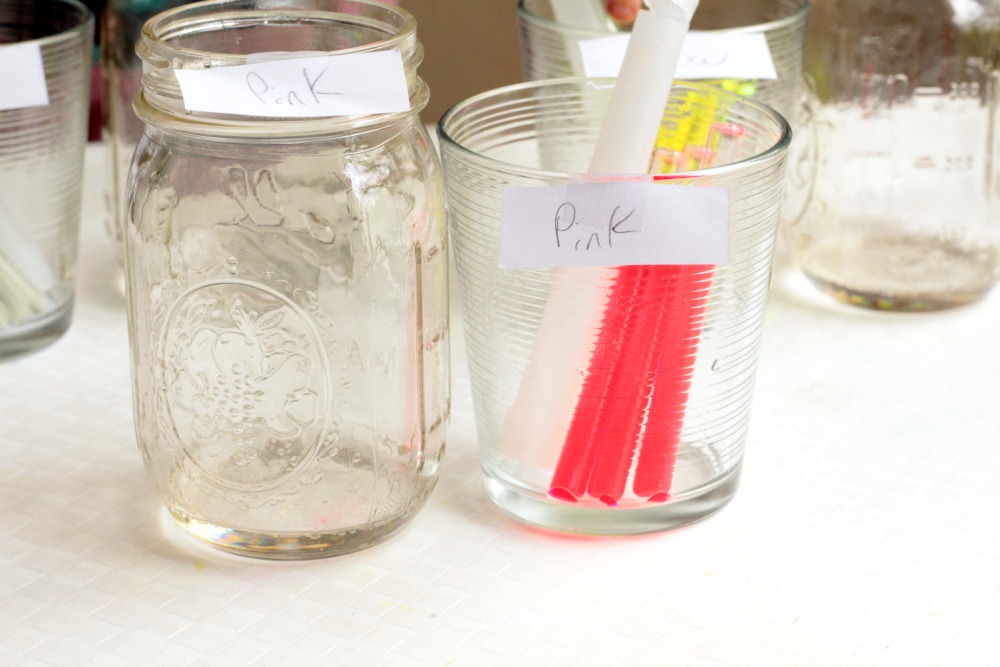
Rinse out the inside of the glow stick with water and the glass rod inside the stick.
Carefully break open the glass tube inside the plastic tube and pour the center liquid into the other container labeled with that color's name. Make sure you're not getting any glass shards into the containers, which you can prevent by using a mesh colander.
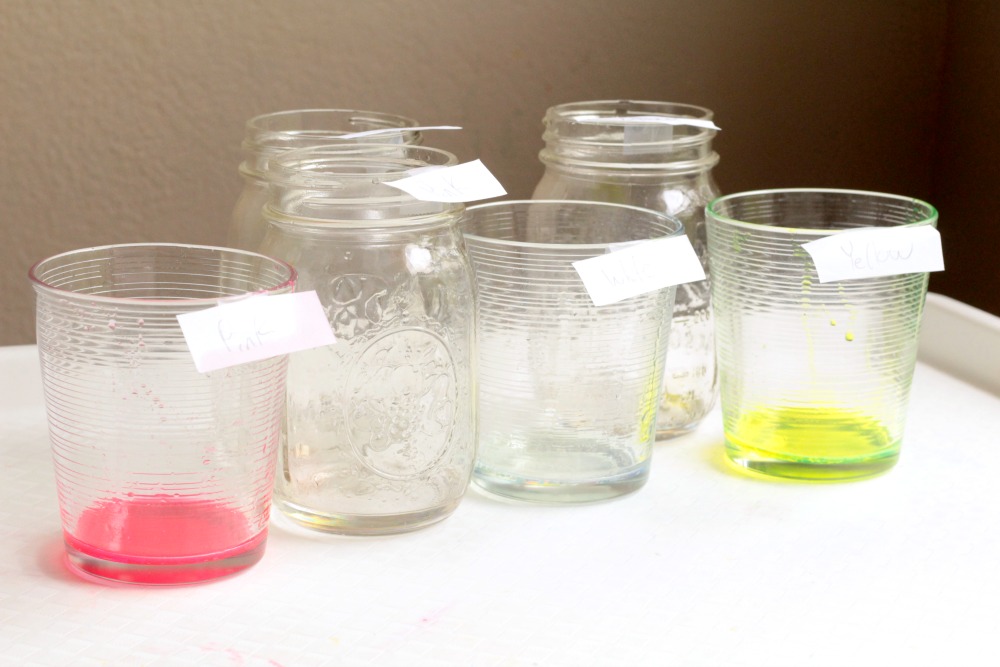
Repeat this process for each glow stick. If you don't rinse the tubes well enough, the chemicals will start to react before you're ready to start the demonstration. So it is important to make sure they are clean before opening the center rod.
We used three glow sticks per color, but the more you open, the more liquid you will have to illustrate the science lesson.
Glow Stick Science Experiment Safety
The chemicals in glow sticks are non-toxic. However, they are extremely bitter to taste and should not be handled by children. When doing this science demonstration, it is recommended to wear latex gloves, wear safety goggles, and only allow teachers or parents to handle the glow stick fluid. This will ensure maximum safety.
Doing the Glow Stick Science Experiment
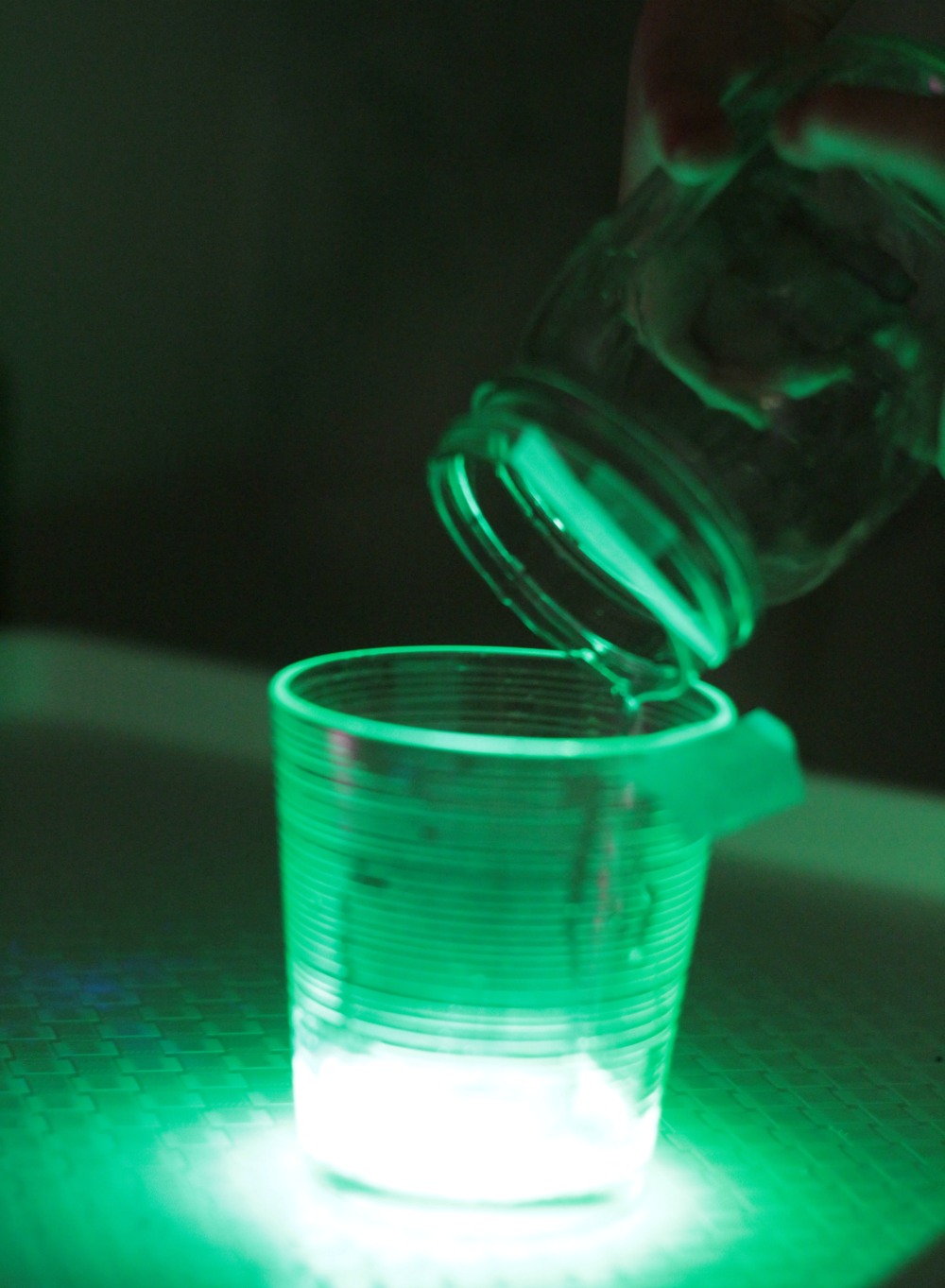
Once all colors are out of the glow sticks, place the containers on your tray. Turn off the lights and show the kids how the fluids are not yet reacting and are not glowing at all.
Carefully pour the two liquids together, one color at a time. Kids will love how quickly the solution starts to glow. At this point, you can talk about why the liquid lights up and what chemical properties are causing this interesting and colorful reaction.
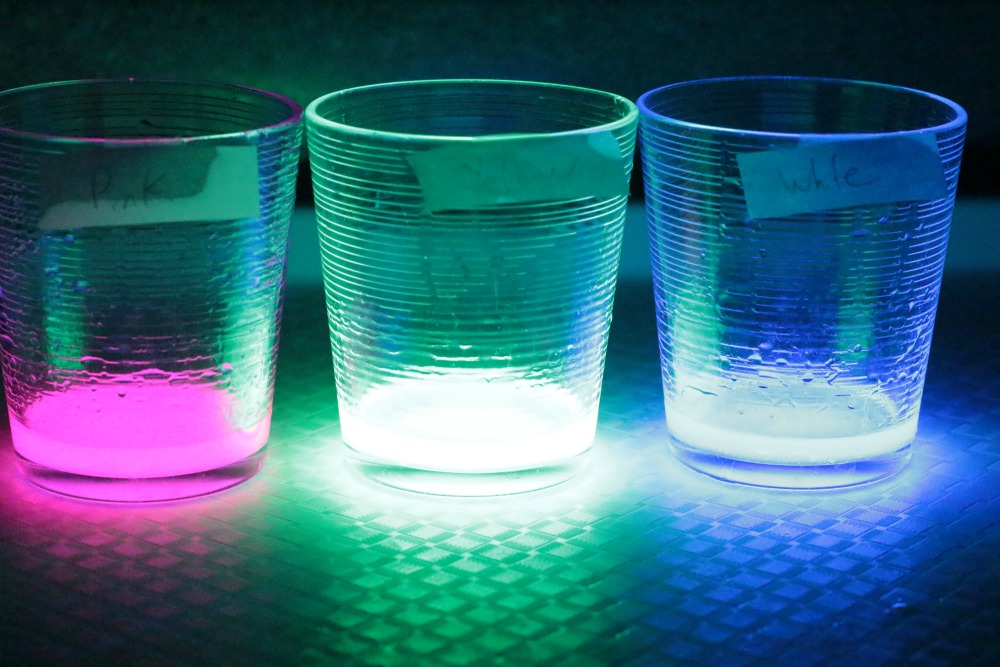
After all colors are mixed, show the kids how when you mix all of the colors, the combined liquid starts to give off a white light. This is because the colors start reflecting all light frequencies, so individual color is no longer visible.
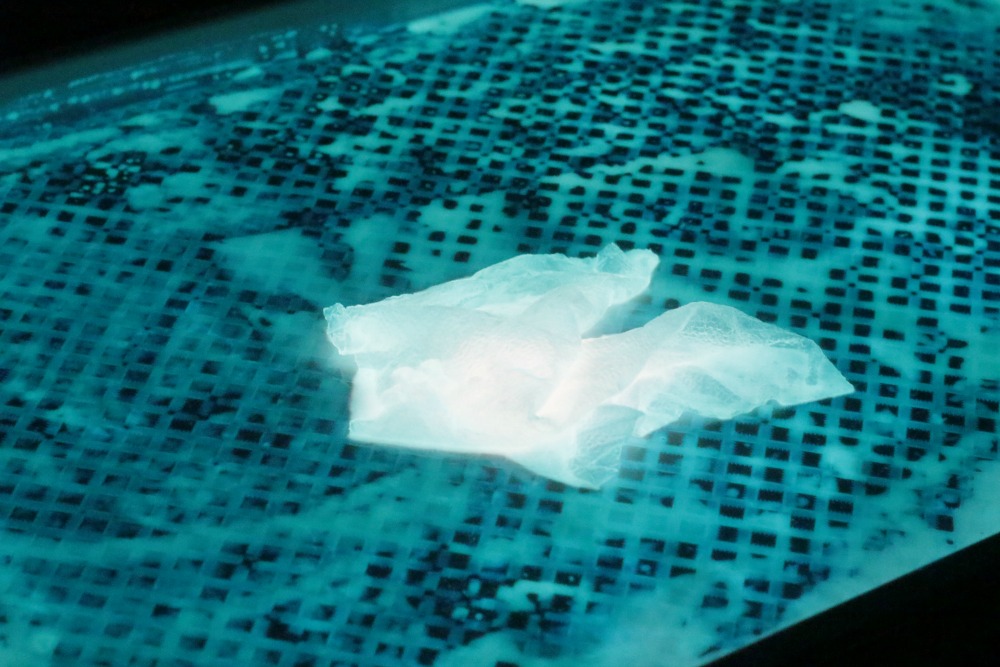
The Science Behind Glow Sticks
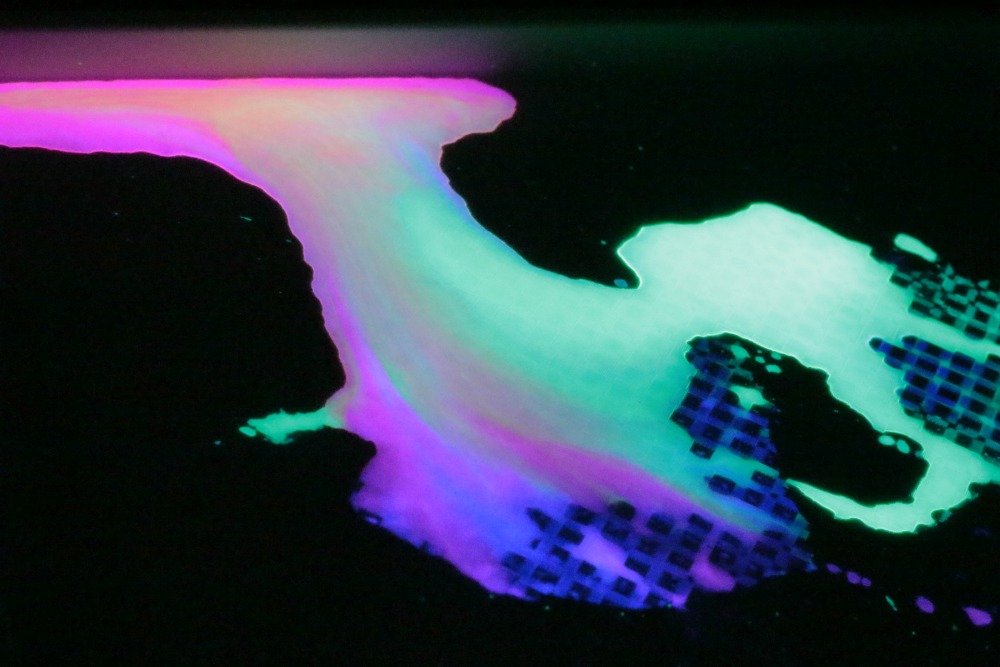
Glow sticks contain two sets of chemicals that when combined, create a chemical reaction called Chemiluminescence.
In the outer part of the glow stick, a combination of phenyl oxalate ester and fluorescent dye are used. Inside the glass tube, a combination ofhydrogen peroxide and a phthalate ester solvent are mixed. When the two chemicals are mixed, they create a chemical reaction that causes oxygen atoms to move around quickly, which creates an unstable compound that gives off energy. The extra energy from the mixture causes the dyed molecules to move faster, creating a glowing effect.
When the three colors of dye are mixed, they reflect all light, creating a "white light" effect.
More Science Activities and Ideas
Walking Water Science for Kids
Science Notebook
Plants Unit
Want science planned for you ALL YEAR LONG?!
Do you want science planned for the ENTIRE CALENDAR YEAR!? This Endless Science Mega Bundle will save you so much time and keep your students engaged and excited about learning. This amazing resource contains 53 science topics includinglife science, physical science, earth science, and animal studies.
Source: https://www.adabofgluewilldo.com/glow-stick-science-chemical-reaction-lab/
0 Response to "Do Glow Sticks Create Continuous Spectrum"
Post a Comment